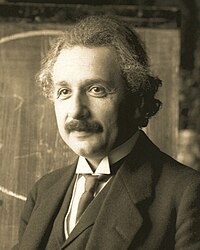English for B2 Students/Unit 9
I want to be a scientist
[edit | edit source]Aim of this lesson: Identify and use verb patterns. Verb patterns describe the form of verb which follows the first verb. The second verb can be in the infinitive, gerund or bare infinitive (without 'to'). Also you will learn to talk about jobs: job titles and routines.
Speaking about jobs
[edit | edit source]Work with a partner, if you can, and ask/answer these questions. If you're on your own you should think about these questions and write your answers instead.
- Do you work or study?
- How long have you been working / studying? (note. use the Present Perfect when answering this question)
- What job did you want to do when you were 10 years old?
- Are there any jobs you would hate doing? Why? (note. use the 2nd Conditional when answering this question)
- In your job, what do you enjoy doing?
Grammar - Verb Patterns
[edit | edit source]In English when we use two verbs together we have to decide what form the second verb should take. We can choose between infinitive (to eat), gerund (eating) or infinitive without to (eat). The form of the second verb depends on the first verb. This table shows some common verbs and the form that the second verb should take.

| Verb + Infinitive | Verb + Gerund | Verb + Infinitive (-to) | ||||||||||||||||||||||||||
|---|---|---|---|---|---|---|---|---|---|---|---|---|---|---|---|---|---|---|---|---|---|---|---|---|---|---|---|---|
| want | like | must | ||||||||||||||||||||||||||
| decide | hate | should | ||||||||||||||||||||||||||
| would like | love | can | ||||||||||||||||||||||||||
| forget | suggest | will | ||||||||||||||||||||||||||
| choose | enjoy | may | ||||||||||||||||||||||||||
| ||||||||||||||||||||||||||||
| ||||||||||||||||||||||||||||
| ||||||||||||||||||||||||||||
Examples of Verb Patterns
[edit | edit source]- Roger suggested going to the cinema (suggest + ing)
- What do you want to eat? (want + infinitive)
- I'm sorry but I must go now. (must + infinitive without 'to')
- She hates swimming at 12:00pm ( hate + ing )
Vocabulary - Jobs
[edit | edit source]Look at the table below. Do you know the correct definitions for these jobs? Click on the 'show' button on the right for the correct answers.
Exercises
[edit | edit source]Try these questions to see if you know your verb patterns and vocabulary about jobs. The answers can be found here.
Complete the following sentences using the correct modal verb:
- When I am older I would like to live / living in the USA.
- Have you decided what to buy / buying / buy yet?
- It's a secret. You mustn't to tell / telling / tell anybody!
- I suggest to go / going / go to the seaside at the weekend.
- Please don't forget to close / closing / close the window before you leave.
Grammar Reference
[edit | edit source]For further information about verb patterns and the use of infinitive, gerund or bare infinitive see Using Verbs Together.